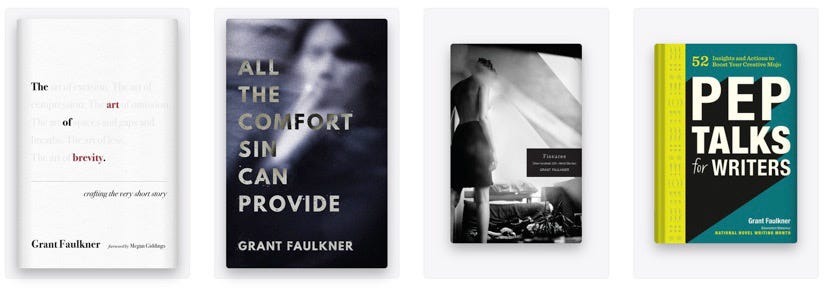“Blessed be moments, millimeters and, even humbler than these, the shadows of all tiny things.”
—FERNANDO PESSOA
I’ve been re-reading the novel Snow Country, by Yasunari Kawabata, which I first read as a young college student without knowing anything about the aesthetic it was born from or how I would later become obsessed with that aesthetic as a way to see the world.
Kawabata was obsessed by capturing the essence of a story. Essence as the intrinsic, indispensable quality that characterizes something, an extract that holds the fundamental properties of something in a concentrated form, a perfume, a scent.
In his most strenuous effort to capture the essence of a story, Kawabata turned Snow Country, for which he received the 1968 Nobel Prize, into an eleven-page story, “Gleanings from Snow Country.” Kawabata completed the story just three months before his suicide in 1972.
“Gleanings” pulls scenes almost intact from the novel, but Kawabata does not offer a condensed retelling, as one might expect; instead he becomes more suggestive. “Gleanings” moves without back-story, without the context of the novel, which centers on a story of two people meeting on a train in a doomed love affair.
“Gleanings” defines these characters as being more like particles floating through space, unattached, not moored in a particular world or pulled forward by a particular trajectory or fate. In his spare style, Kawabata intensifies images and excavates new facets of his novel.
I’ve always wondered why he rewrote Snow Country as a short story. Did he suddenly realize that the novel, all of those pages, all of those words, didn’t serve the story—that the truth of the story required a smaller space, to be passed through smoke like a perfume?
I love thinking about Kawabata’s obsession with this because an aesthetic is defined by obsession—the obsession becoming a sculptor’s tool. My image of Kawabata is that he was somehow dissatisfied with his novel, even after it had won the highest literary award in the world, and needed to re-make it into a fine perfume, distilling its ingredients into their most powerful forms, searching for the vaporous whorls of suspense and necessary reserve that are integral to good storytelling.
He was a writer living in service to his story. He knew that the gleanings of the novel mattered more than all of the nuts and bolts of a novel, its connective tissue, its chronology, its explanations.
No matter what form you’re writing in, think about what the gleanings of your story are. A gleaning might be a mood, an image, a single striking moment of tension. The gleanings will guide you to the true perfume of your story. The gleanings are the story’s poetry.
Excerpted from The Art of Brevity. I’ll be sharing excerpts from my new book each week.
Gleanings from The Art of Brevity
My book in 100 words …
Even God knows the story can’t be told in its entirety. A profligacy of words soon disorients. Rococo flourishes end as fulsome decadence. It is absence that spawns the fundamental mystery of life. Subtle gestures, dashing glances, unspoken words whisper through our days, a beguiling puzzle. No explanations, please. Listing a dish’s ingredients reduces its taste. Keen images pique the palate best. We drift, rush, falter, and flounce, following scents. A flicker of light appears, a thunderclap in the distance. Illumination, short-lived, then gone, or so it seems. We can only touch nuances and wonder. And then, that final breath.
Because a quote
“A book that is made up of fragments. … There is white space, therefore. Ghosts coming and going, adding and subtracting, rearranging the air.”
—J. D’Agata
Because I’d love for you to buy one of my books
I write this newsletter for many reasons, but mainly just for the joy of being read and having conversations with readers. This newsletter is free, and I want it to always be free, so the best way to support my work is to buy my books or hire me to speak.
Because more about me
I am the executive director of National Novel Writing Month, the co-founder of 100 Word Story, and an Executive Producer of the upcoming TV show America’s Next Great Author. I am the author of a bunch of books and the co-host of the podcast Write-minded.
My essays on creative writing have appeared in The New York Times, Poets & Writers, Lit Hub, Writer’s Digest, and The Writer.
For more, go to grantfaulkner.com, or follow me on Twitter or Instagram.







Reminds me what Michelangelo said about sculpting David when asked by a pope. One of the greatest all-time sculptures from one piece of material. “It's simple. I just remove everything that is not David."
I love thinking about the nuances of story. Thank you for this piece. I've pre-ordered your book and am looking forward to reading it and exploring flash fiction.